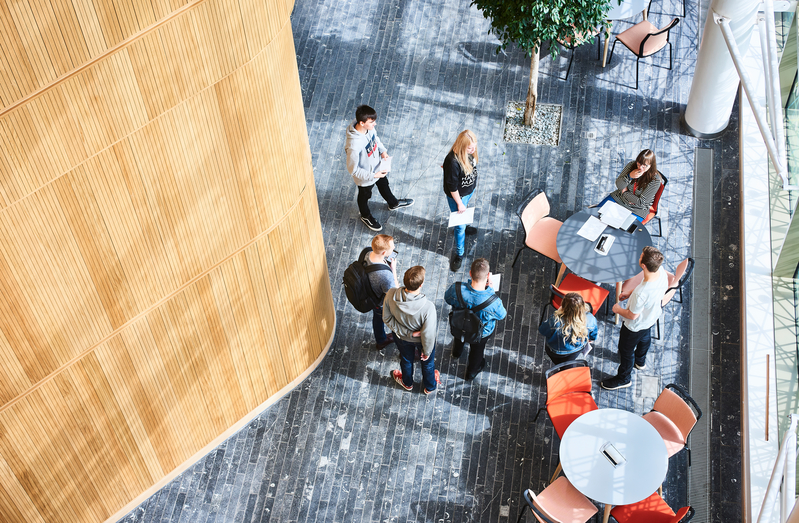Be bold, be brave and think about the new possibilities, words from Professor Julie Sanders set the tone for The Future of Work : Stimulus Event held on the 13th June. In an area that often results in fear and uncertainty, with much of the media focussing on loss of jobs as a result of AI developing at an ever increasing speed, it was refreshing to see this topic being tackled from such a positive perspective.
This approach was continued by Professor Suzanne Cholerton who outlined how the new Education Strategy embraced the challenges ahead and aimed to give our students an education for life in a world that we don’t yet know. A focus was placed on the strategy theme, ‘developing students as the whole person by supporting and preparing them to shape the societies in which they will live and the professions they choose to enter’ and this focus was evident from other speakers throughout the day. An emphasis was placed on developing attributes, and thinking about how our graduates can engage creatively and critically with the digital environment.
A pretty inspiring trailer set the scene for the talk by Professor Sugata Mitra who started to develop ‘The hole in the wall’ while teaching computer programming in India. The simple premise of giving children access to the internet in a public space resulted in a rapid rate of learning that nobody really predicted. This work has developed further with Self Organised Learning Environments (SOLE) where students work together to answer Big Questions using the internet, as well as the ‘Granny Cloud’ with mediators known as grannies working with the children to inspire curiosity, an approach summarised by Professor Mitra by:
“You go there, I’ll go there with you”
There were some key areas for thought posed during this talk including a focus on current assessment practices across education. These are largely unchanged even though the world in which we work has changed at such a rapid pace. Are these approaches really still relevant for students entering the new world of work?
Another interesting point was raised by a member of the audience who wanted to know if Professor Mitra’s findings only applied if groups were physically together or did the same approach work if the groups were in an online space. The answer was that being physically together was paramount to SOLE working. The why, however, was not yet clear.
Following this talk we heard from key speakers who gave thought-provoking 5 minute talks. Again a common theme running throughout was the focus on developing the student as a whole person. Whether this is via some of the many projects organised by the Student’s Union, allowing students to fail at some tasks in order to build resilience or ensuring graduates have the skills needed for portfolio careers where the ability to adapt will be essential. Consideration was also given to the wellbeing of students and graduates, as well as the opportunities to use data more effectively.
The event concluded with an assertion that this would just be the beginning of the exploration of this topic and although, as you would expect, there were as many questions as answers it is clear that there is a focus on responding to the challenges of the future in an optimistic and hopeful manner.

